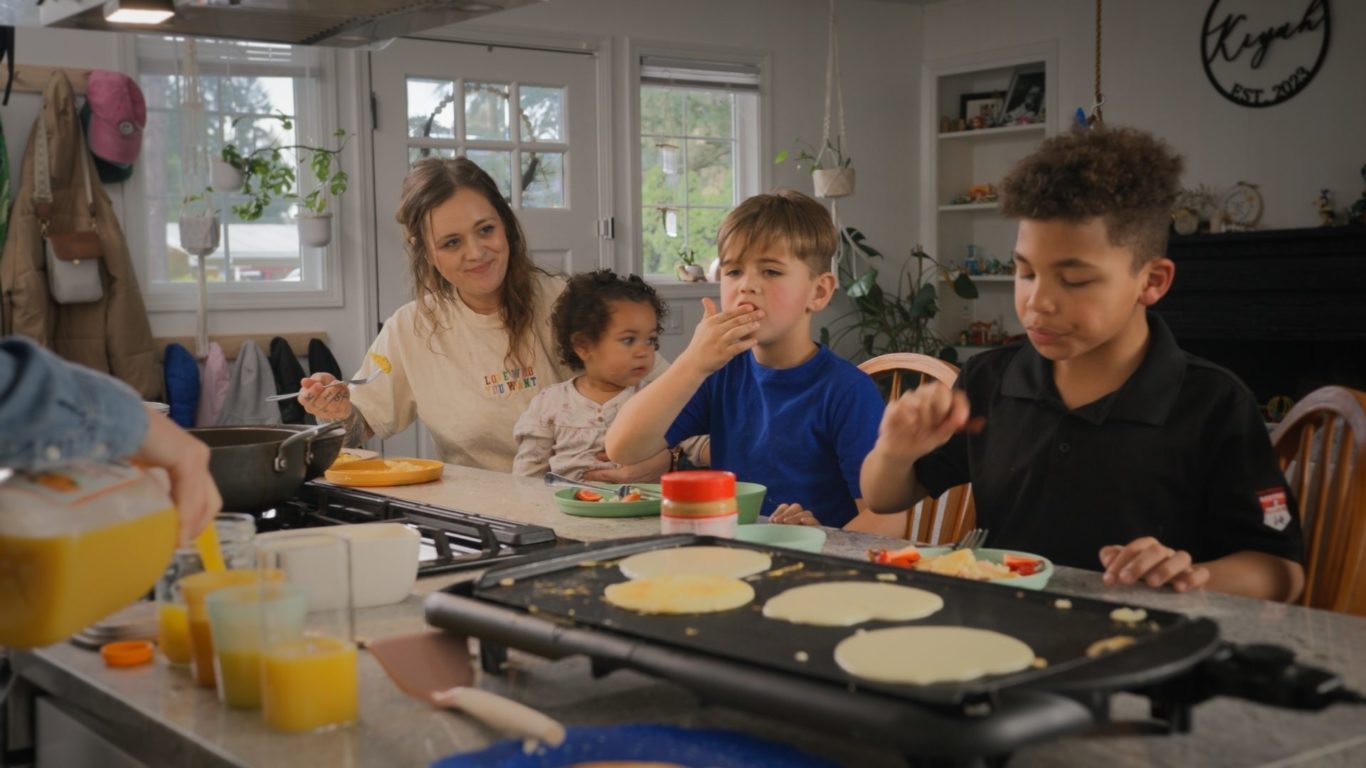–Natalie Kiyah, Single Mom and Anti-Hunger AdvocateAs a single mom, I know how much love and care goes into every meal we share — and how incredibly heavy the burden feels when you’re unsure if you’ll have enough to feed your kids. Being food insecure is not my fault or failure, it's a policy failure. And we can build something better — a future where every family, no matter their makeup or background, has what they need to thrive.
Everyone should be able to put food on the table: Single Mom and Anti-hunger Advocate
Everyone should be able to put food on the table: Single Mom and Anti-hunger Advocate
It sounds simple, but sitting down to eat good food with people you love is a beautiful, basic human experience that everyone deserves. Around the table, we share more than food — we pass along stories, traditions and care.
But across Oregon, too many families are robbed of this simple ritual. Every day, parents are forced to make impossible choices: food or rent? Groceries or medicine?
Today, 1 in 8 people in Oregon experience hunger and 1 in 6 kids don’t have enough to eat. Last year, Oregonians visited food assistance sites 2.5 million times — a 31% increase from the previous year. Hunger does not hit every community the same way. Due to a long history of systemic exclusions, we live in a world where Black, Indigenous and Communities of Color, immigrants and refugees, single moms and caregivers, and trans and gender expansive communities are two to three times more likely to face hunger and poverty. That’s why people with lived experience are speaking out.
“Food is a basic need — not a privilege based on who you are or where you're from or what your marital status is,” said Natalie. “Food assistance programs like SNAP have been a lifeline for me and my family, and for so many others.”
–Natalie Kiyah, Digital Engagement and Analytics Specialist
But now that lifeline is at risk. Congress has made deep cuts to SNAP (the Supplemental Nutrition Assistance Program, formerly known as food stamps) that will make it even harder for millions of families to put food on the table, just as demand for food assistance remains at crisis levels. Hunger isn’t a personal failure; it’s a policy failure. The laws our elected officials make — about wages, food assistance, housing, childcare and healthcare — decide who can afford basic needs and who can’t.
“I think about my own kids and the future I want for them. I want their home to be a state where hunger is not a reality for any child, no matter their background or immigration status. I want them to feel safe, welcomed and supported. That’s the Oregon I want for my family, for all of our families — a hunger-free Oregon for everyone.”
—Andrea Williams, President, Oregon Food Bank
Join us to make sure our laws end hunger — not cause it. We have to work together to change the policies that are preventing people from having enough food and making it difficult for us all to pay our bills. We don't have the power to make the changes we need right now – but if we work together, we can change that.
It starts by saying yes – I want to be part of the change because everyone should have the security of knowing their family will have enough food on the table – no matter what.
Sign up to learn more and stay updated about how we can end hunger together.
